The Christian tradition is built on reading books. The Bible, God’s revelation, is itself a collection of books, one which is eternally enduring (Isaiah 40:8). Over the centuries, there have been other books that have encouraged believers, influenced movements, sparked revival, and motivated worldwide change. God has used Christian writers and thinkers to create a huge variety of influential books.
If you want to grow deeper in your relationship with God, learn more about his wonderful love, and be encouraged in your Christian journey, these books in addition to the Bible will feed your soul.
Top 10 Christian Books of All Time
A note on selection: Choosing the “top” Christian books is, of course, somewhat of of a value judgment. When selecting from centuries of writings and thousands of books, it’s not an easy task. In making these selections, we have chosen many old books whose authors are no longer living. In so doing, we have left out many contemporary books that are also very valuable.
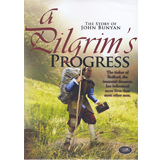 1. Pilgrim’s Progress
1. Pilgrim’s Progress
Who wrote it
John Bunyan (1628-1688) was a Christian pastor. During his lifetime, Anglican England persecuted anyone who was not in agreement with their church policies. John Bunyan, a nonconformist, believed that obedience to God and his conscience was more important than obedience to man’s rules. As a result of his convictions, he was imprisoned for more than a decade.
Bunyan’s spiritual journey (described in Grace Abounding to the Chief of Sinners) led him to many deep insights regarding faith and fellowship. As a result, he wrote dozens of tracts, pamphlets, sermons, and books.
What it’s about
The Pilgrim’s Progress is an allegory, meaning that it is a story with a deep layer of spiritual meaning. Rather than hide this meaning, Bunyan carefully explains the interpretation of each of the allegorical events.
The story revolves around a man named Christian. His problem is the huge burden on his back (allegorically, the weight of sin). Bunyan reads in a book that he should flee his city, The City of Destruction, and seek another one, the Celestial City. Christian embarks on a dangerous journey to seek relief from his burden and to find the Celestial City.
Why it’s important
Since its publication in 1678, Pilgrim’s Progress has never gone out of print. To this day, Pilgrim’s Progress is viewed as one of the greatest works of religious English literature. English preacher C.H. Spurgeon read the book more than 100 times, and C.S. Lewis wrote a significant sequel. Pilgrim’s Progress has been translated into more than 200 languages and read by millions of Christians.
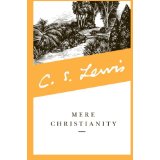 2. Mere Christianity
2. Mere Christianity
Who wrote it
C.S. Lewis (1898-1963) was a Christian writer and apologist, best known for his series The Chronicles of Narnia. Lewis is one of the most influential Christian thinkers of modern times.
What it’s about
Lewis’s short book, Mere Christianity, describes the basics of the Christian faith. Lewis first explains the situation of the entire universe, then explains doctrine-by-doctrine what Christians belief. He doesn’t shy away from explaining and defending Christian behavior, and even going deep on several of the most perplexing doctrines such as the Trinity.
Why it’s important
Mere Christianity spells out the basics of the Christian life in plain language and with powerful argument. In Christianity Today’s “Most Influential Books” survey (2000), Mere Christianity Christianity was nominated more times than any other book. God used the book to bring many people, including Charles Colson, to faith. Phrases and passages from the book have had a massive impact in Christian music (Sixpence None the Richer, Living Sacrifice) and writings.
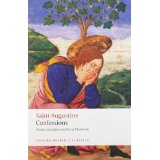 3. Confessions
3. Confessions
Who wrote it
Augustine of Hippo (354-430). Augustine was one of the earliest and most influential Christian writers and thinkers.
What it’s about
Augustine’s Confessions is his spiritual autobiography. It describes his journey from rebellious youth to devout pastor. The Confessions is deeply devotional and meditative.
Why it’s important
Although it was written nearly two millennia ago, Confessions is brimming with relevance. Augustine battled sexual immorality, dabbled in false religions, and faced heresy, just as contemporary believers do.
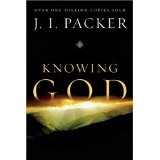 4. Knowing God
4. Knowing God
Who wrote it
J. I. Packer (1926-present). Packer is a Canadian evangelical writer and teacher in the Anglican tradition.
What it’s about
Knowing God is an extended study on the character of God. The chapters explore various facets of His identity, including his wisdom, wrath, love, and grace.
Why it’s important
Knowing God is one of the most readable and powerful books on God’s character. Far from being dry and factual, Knowing God is soul-searching and worshipful. The book has sold millions of copies, and is one of the books on Christianity Today’s “Top 50 Books” list.
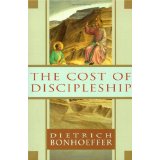 5. The Cost of Discipleship
5. The Cost of Discipleship
Who wrote it
Dietrich Bonhoeffer (1906-1945). Bonhoeffer was a Lutheran pastor whose career was shaped by his resistance to Germany’s Nazi regime. Bonhoeffer was martyred by hanging at the Nazi concentration camp at Flossenbürg.
What it’s about
Throughout his life, Bonhoeffer could not escape the Christian’s need to engage in the world. In his context of Nazi Germany, to follow Christ meant to resist the forces of evil and to preach Christ by living and speaking. Discipleship explains these Scriptural truths, using Jesus’ Sermon on the Mount as the framework for the book.
Why it’s important
In today’s culture of “cheap grace” and entertainment-driven Christianity, Bonhoeffer calls Christians to the level of radical discipleship that Jesus preached:
“Cheap grace is the preaching of forgiveness without requiring repentance, baptism without church discipline. Communion without confession. Cheap grace is grace without discipleship, grace without the cross, grace without Jesus Christ.”
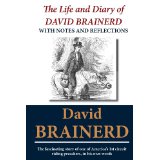 6. Life and Diary of David Brainerd
6. Life and Diary of David Brainerd
Who wrote it
Jonathan Edwards (1703-1758) was the editor. Edwards was an American theologian. He collected and edited the diary of David Brainerd.
The diary is by David Brainerd (1718-1747) a missionary to the Native Americans.
What it’s about
The book is a biography and journal that records Brainerd’s all-consuming passion to preach Christ. In spite of the extreme difficulties, Brainerd pressed on to bring the gospel to the unreached.
All my desire was the conversion of the heathen, and all my hope was in God: God does not suffer me to please or comfort myself with hopes of seeing friends, returning to my dear acquaintance, and enjoying worldly comforts.”
Why it’s important
Brainerd’s life served as the inspiration for the first missionary movement. Brainerd was willing to risk all to obey and follow Christ. The evangelist John Wesley encouraged every preacher to read it. Future missionaries such as Henry Martyn, Adoniram Judson, William Carey,and Jim Elliot all cited Brainerd’s diary as an influence in their own lives.
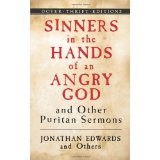 7. Sinners in the Hands of an Angry God
7. Sinners in the Hands of an Angry God
Who wrote it
Jonathan Edwards (1703-1758), a Puritan in tradition, wrote widely during his pastoral and missionary career in New England. His works fill many volumes, but this one short sermon is his most well-known work.
What it’s about
Jonathan Edwards wrote “Sinners in the Hands of an Angry God” as a sermon, which he preached in his Northampton, Massachusetts church. The sermon explained that hell is real, that God’s wrath is active towards sin, and that Christ is the only source of salvation.
Why it’s important
The sermon is one of the most influential in the history of Christianity. God used the sermon to spark the Great Awakening in North American.
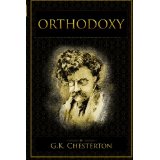 8. Orthodoxy
8. Orthodoxy
Who wrote it
G. K. Chesterton (1874-1936) was an English Catholic writer and apologist. His prolific output included 80 books, hundreds of poems and short stories, over 4,000 essays, and even numerous plays.
What it’s about
Chesterton uses the word “orthodoxy” to sum up the Apostle’s Creed, perhaps the most widely-accepted historic confession. Chesterton does not attempt to end any denominational quibbles, but instead drives directly to the heart of the issue — how do we make sense of this world, and what should we do about it? The book is richly autobiographical and intellectually rigorous.
Why it’s important
Orthodoxy is a thinking person’s search for meaning. Today’s modern culture encourages curiosity and truth-seeking, but often sidesteps the monumental significance of Christianity. Chesterton presents the modern reader with his own journey from intellectual curiosity to convinced Christian.
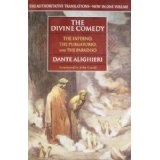 9. Divine Comedy
9. Divine Comedy
Who wrote it
Dante Alighieri was an Italian poet of the late Middle Ages. Dante is widely regarded as “the Father of the Italian language” and his Comedy is considered one of the most influential works in the history of world literature.
What it’s about
Despite the term “comedy”, the Divine Comedy is not intended to be funny. (The word “comedy” describes the Greek classical style, which describes a work written in the vernacular. Comedies usually end in a triumphant way.) The poem describes a fictional journey through hell and to heaven, in which Dante observes various characters experience different levels of punishment and reward (Inferno, Purgatorio, Paradiso).
Why it’s important
Divine Comedy was never intended to be an accurate description of the afterlife. It was, however, intended to describe a person’s spiritual journey from sin and to God. As such, it explains to us God’s justice, our own depravity, and the only source of salvation in Him.
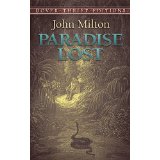 10. Paradise Lost
10. Paradise Lost
Who wrote it
John Milton (1608-1674) was an English poet who served during the regime of Oliver Cromwell. Milton’s life was shaped by personal challenge and national crises. Milton was completely blind when he wrote Paradise Lost, and battled political controversy.
What it’s about
Paradise describes the Fall of Man (Genesis 3) and all the events that preceded and followed this epochal event. Much of the content such as sub themes and conversation is fictionalized in order to convey the overarching themes of the story.
Why it’s important
Milton is very clear about the purpose of Paradise Lost. It is to “justify the ways of God to men.” Nearly everyone has had the experience of asking why? in the face of life’s confusion, evil, and pain. Paradise Lost faces these questions, and places man in his proper place before God.
Conclusion
None of the authors listed above were perfect. None of their works are perfect. Only God and his word are perfect. Nonetheless, God has used these writings to grow his church, shape his people, and transform the world.
Test Drive Sharefaith’s Award-Winning Products
Sharefaith is the only service that combines church websites, kids Bible resources, graphics, video, media, giving and donations as well as presentation and print. Try a free trial today!

